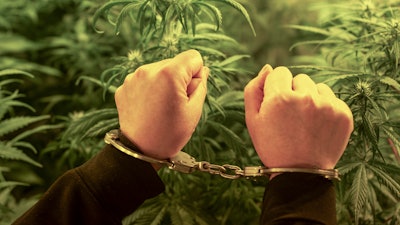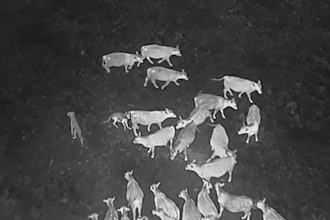
A Beverly Hills man was sentenced today to 300 months in federal prison for obtaining nearly $18 million from investors for sham businesses supposedly operating in hemp related industries – all while he was completing a sentence in a prior criminal case.
Mark Roy Anderson, 70, was sentenced by United States District Judge Fernando L. Aenlle-Rocha, who scheduled a restitution hearing for June 4.
At a hearing, Judge Aenlle-Rocha said, “The magnitude of the fraud is breathtaking…the [victims’ statements reflect] the depth of the harm. Many have lost their life savings reflecting decades of hard work.” Judge Aenlle-Rocha also described Anderson as “an accomplished and incorrigible con man” and stated that “the public must be protected from him for as long as possible.”
Anderson pleaded guilty in April 2024 to two counts of wire fraud. He has been in federal custody since May 2023.
Anderson engaged in two separate but related schemes that swindled victims, which he committed shortly after his release from federal prison but while serving out the rest of his prison term on home confinement and, later, while on supervised release for a previous fraud conviction.
“The defendant stole more than $18 million from dozens of investors by promising quick returns on their investments into hemp farms and other exotic investments,” said Acting United States Attorney Joseph McNally. “Today’s 25-year sentence takes him off the street so that he cannot harm other victims.”
Harvest Farm Group
In the first scheme, from June 2020 to April 2021, Anderson tricked investors into providing funding for his company, called Harvest Farm Group, to harvest hemp supposedly being grown on his farm and then process that hemp into medical-grade cannabidiol (CBD) isolate – a chemical found in marijuana – to be sold for a substantial profit.
Anderson convinced investors to invest in Harvest Farm Group by falsely representing that, through the company, he owned and operated a hemp farm in Kern County. He also lied that had already completed successful and profitable harvests of hemp from the farm. He also falsely said he was using his own machinery and equipment to convert the hemp into CBD isolate and Delta 8, a psychoactive substance that, like CBD isolate, could be used in consumer products ranging from olive oil to body cream.
Anderson attempted to maintain a veneer of trustworthiness by taking steps to assure investors Harvest Farm Group was legitimate and he was not the “Mark Roy Anderson” with multiple prior fraud convictions. Anderson concealed that he had been convicted of multiple federal and state felony crimes, including mail fraud, wire fraud, grand theft, forgery, preparing false evidence, and money laundering. He also concealed that he was still serving a criminal sentence and was on supervised release at the time he was soliciting investments.
To stall victim investors from making collection efforts and reporting him to law enforcement, Anderson falsely promised victims he would pay them money from purported sales of products made to Canadian companies, that sales of products had been delayed because of the COVID-19 pandemic, and that he would otherwise return their money.
Bio Pharma and Verta Bottling
In the second scheme, which ran from April 2021 to May 2023, Anderson deceived investors by soliciting money for Bio Pharma and Verta Bottling, two of his sham companies, by claiming that these businesses successfully manufactured, bottled, and packaged commercial products.
Specifically, Anderson falsely told investors Bio Pharma purportedly manufactured and sold products infused with CBD, including products such as CBD-infused avocado oil, olive oil, pain cream, gummies, tequila, and chili oil. Anderson also claimed that Verta Bottling manufactured and sold beverages and a variety of food products.
Anderson falsely stated that his bottling companies owned and possessed millions of dollars’ worth of assets, including – in Bio Pharma’s case – hemp biomass, CBD isolate, CBD oil, and – in Verta Bottling’s case – manufacturing equipment and an assignable lease for a warehouse to manufacture and sell its products.
Anderson’s other lies to investors included false claims that his bottling companies had at least $10 million in purchase-order contracts from suppliers. He drafted fake legal and business documents, which included fabricated purchase order contracts purporting to show agreements with third party companies to purchase tens of millions of dollars’ worth of products manufactured by the Anderson bottling companies. Anderson also provided victims samples of products purportedly manufactured by his purported bottling companies.
Instead of investing victim funds as he promised, Anderson instead used their money on personal expenses. He has agreed to forfeit his ill-gotten gains from these schemes, including 15 cars – one of them a Ferrari – and real estate in Ojai.
In total, Anderson solicited more than $18.8 million from 45 victims for both schemes, causing victims to lose approximately $17,745,150.






















